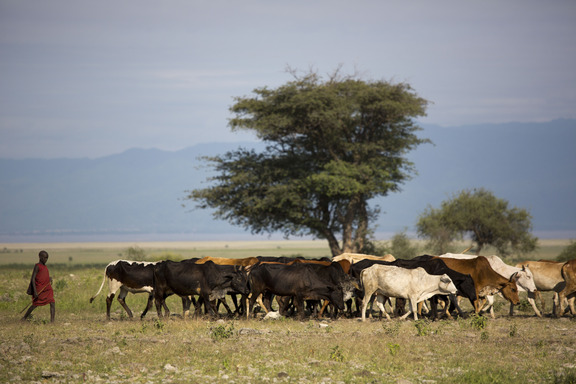With the inaugural Africa Climate Summit getting underway this week, the eyes of the global climate community will turn to Nairobi. The summit is a chance to show the world that Africa and Africans, despite often bearing the brunt of climate change, are not merely passive victims of this crisis. On the contrary, the continent is proving itself to be a dynamic and impassioned force for green action. “African nations are emerging as the new torchbearers of climate action,” says Kenyan President and Africa Climate Summit Host, William Ruto. “At the summit, we aspire to chart a new growth agenda that will deliver shared prosperity and sustainable development.”
The Global South deserves a nuanced livestock health debate
Just as importantly, however, the Africa Climate Summit presents an unmissable opportunity to highlight the relationship between livestock and climate change – in the most broad and balanced way possible. In recent years, debates about this relationship have become dominated by concerns over the carbon and methane emissions of the cattle industry. These concerns are of course valid and need to be part of climate change discussions. But they do not tell the whole story.
In the Global South, a much more nuanced approach to livestock is needed. Here, livestock are the main source of food and income for 600 million people, and are an essential component of national and regional food systems. For millions of small-scale farmers, livestock are at the heart of their lives, livelihoods and cultures. Even though these farmers are under increasing pressures due to climate change, abandoning livestock is simply not an option for them or the countries in which they live.
Fortunately, evidence is growing to show that relatively simple interventions in livestock farming in the Global South can dramatically reduce the industry’s environmental impact. Providing cattle and sheep with a more diverse diet, for example, can reduce methane emissions. In addition, improved land management practices, such as fencing off degraded pasture, have been shown to conserve water, reduce overgrazing and strengthen the soil’s ability to absorb carbon.
Healthy livestock for a healthy planet
GALVmed’s mission to improve livestock health through vaccination also has positive climate and environmental impacts. This might seem surprising, but the science behind it is simple: healthier animals are more productive, while more productive animals emit fewer greenhouse gases relative to the amount of meat or milk they produce.
Livestock vaccinations also reduce the number of animals that are killed, whether by disease or government-mandated culls, thereby further improving the sector’s productivity and carbon efficiency. By raising fewer healthier animals – rather than many unhealthy ones – farmers require fewer resources, reducing the need to deforest and clear unspoilt habitats for farmland.
GALVmed’s work not only boosts smallholder incomes and supports prosperous and sustainable markets, but also contributes to a greener future and reduced mortality rates among vaccinated animals.
The East Coast Fever vaccine, for example, has prevented approximately $119 million worth of cattle deaths, and the new all-in-one treatment for Lumpy Skin Disease, Contagious Bovine Pleuropneumonia and Rift Valley Fever – currently in the stages of registration – looks set to deliver similarly impressive results. In addition to product development, increasing private-sector investment in animal health allows smallholders to choose from an ever-growing stock of quality animal health products, enabling them to rear healthier, more productive livestock.
I hope to see livestock health acknowledged and promoted as an important climate change mitigating element at the Africa Climate Summit. Africa, together with the entire Global South, stands to benefit enormously from greater private-sector investment in livestock vaccinations and other quality animal health products.
These benefits will go far beyond improving the lives of animals and farmers. By reducing waste, lowering greenhouse gas emissions and relieving pressures on the natural environment, they stand to positively impact communities, countries and the entire planet – while continuing to support the lives and livelihoods of millions of the world’s poorest.
Photo: Maasai herder. Arusha, Tanzania, 2015. @GALVmed/Karel Prinsloo, 2015



